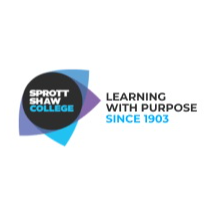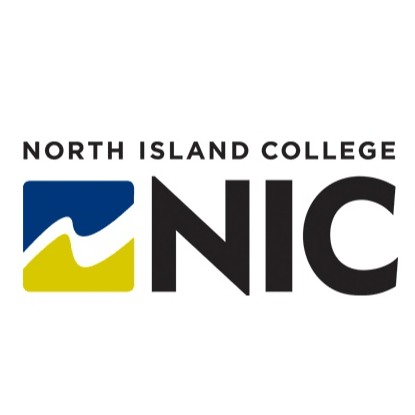
Home > Study in Canada > British Columbia Institute of Technology - Burnaby Campus > Diploma in Forest and Natural Areas Management
Diploma in Forest and Natural Areas Management
 British Columbia Institute of Technology - Burnaby Campus, Canada
British Columbia Institute of Technology - Burnaby Campus, Canada

CAD 23913
Annual Tuition Fee

CAD 154
Application Fee

24 months
Duration

6.5
IELTS

86
TOEFL

60%
Min GPA
Program Overview
Are you passionate about working outdoors and interested in the management of trees, vegetation and forest ecosystems? The Forest and Natural Areas Management program is a two-year diploma program with a focus on forestry, vegetation management, arboriculture for supporting sustainable community development in both rural and urban environments.
The program gives you a strong foundation in ecology, earth sciences, mapping, surveying & measurements. You will learn skills and training in silviculture, forest inventory, forest engineering, fire & forest health management, and urban forestry. Our programs unique focus natural areas in urban & interface environments provide you with skills in the management of trees, invasive species & soil resources. The breadth of technical and field-based skills you acquire also relevant to many other natural resource sectors.
Why is forest management important?
Management of forest resources in today’s world means managing forest ecosystems. Forestry practices must integrate field skills, scientific knowledge and technology in an ecological framework, to produce various goods and services. It involves assessing the health of forests with respect to insects and disease, planning revegetation strategies, and using technology to map and track forest inventories. But it is also about considering the interests of other resource users, while ensuring future generations can equally benefit from our forests. Forest ecosystems provide major economic, social & ecological benefits to communities, businesses & First Nations throughout British Columbia. Almost 60% of the land in British Columbia is forested – stewardship of these lands is no small feat. Are you up for the challenge?
What is natural areas management?
With increasing urbanization, forests and natural areas in and around our communities are growing in importance. People value natural areas for recreation, aesthetics and psychological well-being. But natural areas also provide important ecological services, like habitat for wildlife, promotion of biodiversity, storm-water flood mitigation & heat wave moderation. Whether you’re assessing urban trees, reducing wildfire risk around communities, or managing invasive plants, the role of a natural areas manager is diverse. It also requires an integration of skills, from community planning, to vegetation management & urban forestry.
What are some key skills FNAM students learn?
- Identify, describe, measure and interpret ecosystems and associated components including landforms, vegetation, soils, geomorphology, aquatic ecosystems, forest stand attributes and wildlife habitat
- Collect field data in both urban and rural environments and create technical reports, spreadsheets and digital maps using industry standard software (such as GIS & GPS) including the use of leading technology
- Apply vegetation management techniques for application in wildland and urban silviculture areas
- Analyze vegetation symptoms that relate to insects and diseases
- Design and implement sampling plans and techniques for resource inventories
- Assist in wildland and urban interface forest fire activities including suppression and hazard assessment
- Apply forest engineering principles to meet the objectives of operational plans and forest management objectives
- Communicate effectively in all aspects of natural resource management activities
- Apply principles of ethics and professionalism to day-to-day activities
Additional Information
Program Level UG Certificate / Diploma
College/University Processing Time 30 Days
Program Format Full-Time
General Admission Requirement
- IELTS
- Minimum Overall Score - 6.5 - With No Band Less Than - 5.5
- TOEFL
- Minimum Overall Score - 86 - With no score less than - 20
- PTE
- Minimum Overall Score - 60.0 Minimum Listening - 60.0 Minimum Reading - 60.0 Minimum Writing - 60.0 Minimum Speaking - 60.0
- DUOLINGO
- Minimum Overall Score - 120.0
Academic Requirement
- Minimum Level of Education Required: To be accepted into this program, applicants must have Grade 12 / High School Diploma or equivalent including the following required course(s):
- Math: one of the following:
- Pre-Calculus 11 (60%) or
- Foundations of Math 11 (67%)
- Science: two of the following with minimum high school grade 11 (60%):
- Chemistry
- Earth Sciences
- Environmental Science
- Life Sciences
- Physics
- Science for Citizens
- Math: one of the following:
Similar Programs


Mohawk College - Fennell Campus
Intake Jan 2026
Sep 2025

Application Fee

Duration
Test Score
6
IELTS
80
TOEFL
65
Min GPA


Mohawk College - Fennell Campus
Intake Jan 2026
Sep 2025

Application Fee

Duration
Test Score
6
IELTS
80
TOEFL
65
Min GPA


British Columbia Institute of Technology - Burnaby Campus
Intake
Sep 2025

Application Fee

Duration
Test Score
6.5
IELTS
86
TOEFL
60
Min GPA


British Columbia Institute of Technology - Burnaby Campus
Intake
Sep 2025

Application Fee

Duration
Test Score
6.5
IELTS
86
TOEFL
60
Min GPA


British Columbia Institute of Technology - Burnaby Campus
Intake
Sep 2025

Application Fee

Duration
Test Score
6.5
IELTS
86
TOEFL
60
Min GPA


British Columbia Institute of Technology - Burnaby Campus
Intake
Sep 2025

Application Fee

Duration
Test Score
6.5
IELTS
86
TOEFL
60
Min GPA


British Columbia Institute of Technology - Burnaby Campus
Intake
Sep 2025

Application Fee

Duration
Test Score
6.5
IELTS
86
TOEFL
60
Min GPA


British Columbia Institute of Technology - Burnaby Campus
Intake
Sep 2025

Application Fee

Duration
Test Score
6.5
IELTS
86
TOEFL
60
Min GPA


British Columbia Institute of Technology - Burnaby Campus
Intake
Sep 2025

Application Fee

Duration
Test Score
6.5
IELTS
86
TOEFL
60
Min GPA


British Columbia Institute of Technology - Burnaby Campus
Intake
Sep 2025

Application Fee

Duration
Test Score
6.5
IELTS
86
TOEFL
60
Min GPA


British Columbia Institute of Technology - Burnaby Campus
Intake
Sep 2025

Application Fee

Duration
Test Score
6.5
IELTS
86
TOEFL
60
Min GPA


British Columbia Institute of Technology - Burnaby Campus
Intake
Sep 2025

Application Fee

Duration
Test Score
7
IELTS
90
TOEFL
60
Min GPA


British Columbia Institute of Technology - Burnaby Campus
Intake
Sep 2025

Application Fee

Duration
Test Score
6.5
IELTS
86
TOEFL
60
Min GPA


British Columbia Institute of Technology - Burnaby Campus
Intake
Sep 2025

Application Fee

Duration
Test Score
6.5
IELTS
86
TOEFL
60
Min GPA


British Columbia Institute of Technology - Burnaby Campus
Intake
Sep 2025

Application Fee

Duration
Test Score
6.5
IELTS
86
TOEFL
60
Min GPA


British Columbia Institute of Technology - Burnaby Campus
Intake
Sep 2025

Application Fee

Duration
Test Score
6.5
IELTS
86
TOEFL
60
Min GPA


British Columbia Institute of Technology - Burnaby Campus
Intake
Sep 2025

Application Fee

Duration
Test Score
6.5
IELTS
86
TOEFL
60
Min GPA


British Columbia Institute of Technology - Burnaby Campus
Intake
Sep 2025

Application Fee

Duration
Test Score
6.5
IELTS
86
TOEFL
60
Min GPA
.png)

Algonquin College - Ottawa Campus
Intake Jan 2026, Sep 2026
May 2025, Sep 2025

Application Fee

Duration
Test Score
6
IELTS
80
TOEFL
50
Min GPA


British Columbia Institute of Technology - Burnaby Campus
Intake
Sep 2025

Application Fee

Duration
Test Score
6.5
IELTS
86
TOEFL
60
Min GPA
Tuition Fee
The values given below are estimated figures, excluding extra charges like material fee, student activity fees, athletic fees, health care, etc., for courses. To know more, please visit the Programs page.
Average Tuition Fee Per Year
23913
Tuition Fee
(CAD)
CAD 154
Application Fee
(CAD)
12000 Per year
Average Cost of Living
(CAD)
The living costs include the total expenses per month, covering accommodation, public transportation, utilities (electricity, internet), books and groceries.
Check program website for more information about funding options.
Not sure what you are looking for?
Don’t worry, we are here to help.
Popular Universities to Study Abroad
World class education waiting for you.

British Columbia, Canada • 19 Programmes
Tuition Fee : CAD 10000 - 38000 / year
.png)
British Columbia, Canada • 22 Programmes
Tuition Fee : CAD 13500 - 29000 / year

British Columbia, Canada • 13 Programmes
Tuition Fee : CAD 29000 - 54000 / year

British Columbia, Canada • 15 Programmes
Tuition Fee : CAD 8500 - 20000 / year

British Columbia, Canada • 2 Programmes
Tuition Fee : CAD 13500 - 19000 / year
Top Places To Study In Canada
Province wise Popular university and colleges for Studying abroad.
- Universities in Alberta
- Universities in British Columbia
- Universities in Manitoba
- Universities in New Brunswick
- Universities in Newfoundland and Labrador
- Universities in Nova Scotia
- Universities in Ontario
- Universities in Prince Edward island
- Universities in Quebec
- Universities in Saskatchewan
- Universities in Yukon Territory
Popular English Language Proficiency Exams
Blogs and Articles
Study in Canada Blogs & Articles
Updated on • Jan 24,2025 10:50 AM IST • Study in Canada
Canada Student Visa Interview Questions
Updated on • Jan 23,2025 12:16 PM IST • Study in Canada
Updated on • Dec 05,2024 05:04 PM IST • Study in Canada
Best Cities to Study in Canada
Updated on • Nov 21,2024 05:23 PM IST • Study in Canada
Study intakes in Canada - Fall, Winter & Summer
Updated on • Oct 03,2024 12:51 PM IST • Study in Canada
New Rules & Regulations in Canada for International Students
Updated on • Aug 31,2024 03:19 PM IST • Study in Canada
Public Transportation in Canada for International students
Updated on • Aug 29,2024 05:08 PM IST • Study in Canada
Healthcare in Canada for international students
Updated on • Aug 27,2024 05:12 PM IST • Study in Canada
LLB in Canada for Indian Students After 12th
Updated on • Jun 28,2024 05:48 PM IST • Study in Canada
Benefits of 1+1 Programs in Canada
Updated on • Jul 12,2024 04:06 PM IST • Study in Canada
Increase your CRS Score with 1-year Master's in Canada
Updated on • Jun 11,2024 05:53 PM IST • Study in Canada
Hotel Management Courses in Canada: Top Universities & Available Scholarships
Updated on • May 31,2024 05:57 PM IST • Courses in Canada
Management Courses in Canada: Universities, Fees, Requirements, Scholarships & Jobs
Updated on • May 28,2024 01:39 PM IST • Study in Canada
Updated on • May 24,2024 04:49 PM IST • Study in Canada
Top Universities For Computer Science Courses in Canada
Updated on • May 28,2024 11:02 AM IST • Study in Canada
Increase Your PGWP Duration with 2 Years of Study in Canada
Updated on • May 22,2024 10:58 AM IST • Study in Canada
Canada Increases Off-Campus Working Hours for International Students
Updated on • May 22,2024 05:48 PM IST • Study in Canada
Student Education Loan to Study in Canada - Eligibility, Documents Required, How to Apply
Updated on • May 18,2024 03:27 PM IST • Education Loans
Teaching Courses in Canada for Indian Students
Updated on • May 17,2024 11:26 AM IST • Study in Canada
Universities in Canada for International Students
Updated on • May 14,2024 11:49 AM IST • Study in Canada









